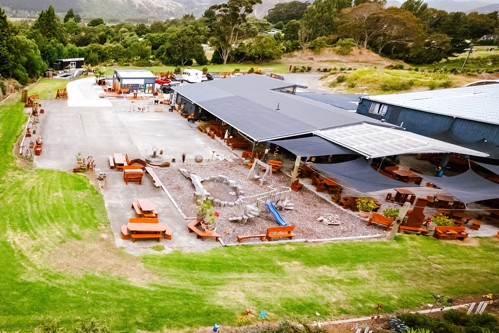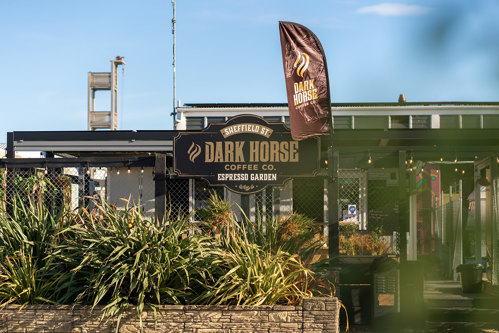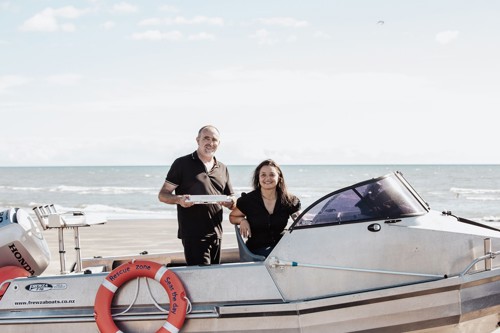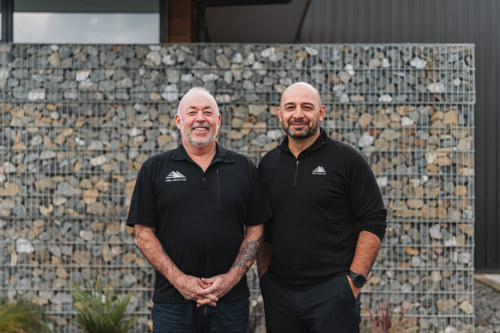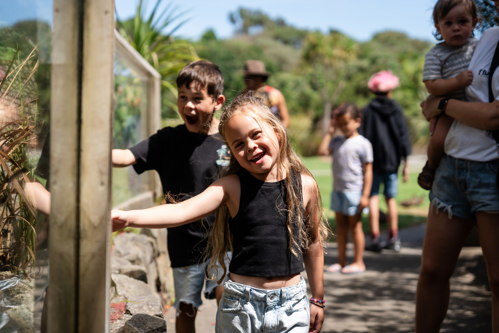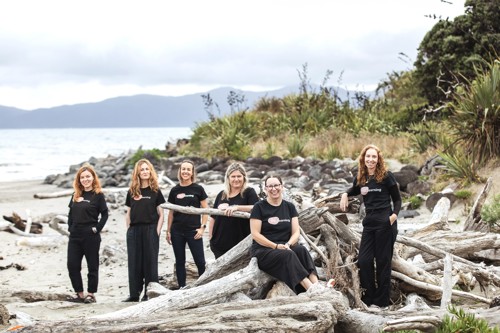The Kāpiti Coast's Strategic Direction
The Economic Development Strategy (2025-2028) outlines how the Kāpiti Coast district will enable businesses, industry, and the wider community to flourish in a productive, innovative, and sustainable way.
The Strategy retains the vision from the previous period, “Through partnership, we will support the growth of a thriving, vibrant, diverse Kāpiti Coast economy that provides increased opportunity, resilience, and well-being for all.”
The Economic Development Strategy (2025-2028) is shaped by valuable insights from business, industry and the wider community.
To achieve the objectives of the strategy, the focus areas include fostering an innovative and sustainable economy through key industry clusters such as food and beverage, technology, tourism, and creative industries.
In early 2024, we worked alongside the Economic Development Kotahitanga Board to identify key focus areas and strategic shifts that will drive our local economy forward.
A robust engagement process was undertaken commencing with Vision Kāpiti which sought feedback across the whole Kāpiti Coast District. From this, the 2024 Economic Development Direction of Travel was created and provided further opportunity for input for the business community and lay the foundations for the 2025 – 2027 draft strategy which was again, taken back to the community for further feedback.
The Economic Development Strategy (2025 – 2028) has three key focus areas, supported by three measurable shifts. Together, these initiatives will drive economic growth, innovation, and opportunity for all. Maintaining continuity in focus will ensure that the momentum that is now underway continues, and that we keep our gaze focused on driving change.
1.
Foster a resilient economy based on productive and innovative clusters that are environmentally sustainable and future focused.
Creating a strong and environmentally sustainable economy by supporting the development of key industry clusters such as Food and Beverage, Technology, Tourism, and Creative Industries to drive economic growth and innovation.
Measurable shifts: More resilient, productive businesses and economy with strong, industry-led clusters, job creation, wage growth, increased local GDP, and more events in the region.
2.
Ensuring Kāpiti Coast residents and communities benefit from local training and career opportunities.
Developing education opportunities and skills hubs that are local, easy to access, and provide wide variety of training programs tailored to the local workforce and industry needs.
Measurable shifts: More inclusive, innovative networks and economic development system with increased access to local training opportunities, and more people completing
training.
3.
Creating an inclusive community that is recognised as a great and easy place to invest and do business
Encouraging an inclusive business community where everyone can have the tools for success whilst making it easier to do and start business on the Coast.
Measurable shifts: More attractive, sustainable economic environment where businesses understand and navigate Council processes, attracting more businesses to the district.Kāpiti’s Economic Development Strategy provides a roadmap for a thriving, resilient, and inclusive local economy.
Guided by key workstreams, the strategy focuses on fostering innovation, attracting investment, strengthening industry connections, and creating opportunities for businesses and workers to succeed.
Strengthening Industry Clusters
Building on the success of existing industry clusters to drive collaboration, innovation, and business resilience.
Promoting Sustainable Business Practices
Encouraging environmentally responsible and socially sustainable business operations to future-proof the economy.
Enabling Māori Economic Rangatiratanga
Embedding Māori economic leadership and principles to guide growth and support Pakihi Māori and economic wellbeing.
Attract Aligned Businesses and Investment
Drawing in enterprises that contribute to the district’s long-term economic aspirations and community values.
Expanding Local Skills and Employment Opportunities
Strengthening pathways to local training, education, and employment that benefits the Kāpiti Coast workforce.
Empowering New and Existing Businesses
Providing resources, support, and guidance to help businesses establish, scale, and leveraging the local business networks.
Growing the Visitor Economy
Enhancing tourism offerings and events to attract visitors to Kāpiti as a destination and generate economic benefits for local businesses.
Support Regulatory Processes
Ensuring regulatory requirements are clear, coordinated, and easy to navigate, enhancing business support.
Our measures provide an indication of how the local economy is performing, helping us track progress over time and make informed decisions.
They allow us to assess the effectiveness of the Economic Development Strategy’s workstreams—whether it's in job creation, business growth, investment attraction, or sector development—and understand what’s working well and where improvements are needed.
By monitoring trends, gathering business and community feedback, and analysing economic indicators, we can ensure our efforts remain targeted and responsive. These insights help us allocate resources where they’ll have the greatest impact, adjust our approach when needed, and demonstrate accountability to stakeholders and the wider Kāpiti community.
|
How we will measure change |
What shift we will see |
|
Number of businesses engaged in each cluster |
Increase |
|
Per capita income |
Increase |
|
Sector share of GDP growth |
Increase |
|
Number of major events and economic impact of each |
Increase |
|
Business membership of Sustainable Business Network, |
Increase |
|
Number of local training programmes offered |
Increase |
|
Number of people completing local training |
Increase |
|
Māori employment rate |
Increase |
|
Youth NEET rate |
Decrease |
|
Unemployment rate for people with disabilities |
Decrease |
|
Unemployment rate for people aged 55-65 |
Decrease |
|
Business unit and FTE growth per sector |
Increase |
|
Rates of Business Survey respondents feeling supported by EDKB and Council economic development services |
Increase |
|
Rates of business survey respondents that have good awareness of Council requirements for business and agree that it is easy to do business in Kāpiti |
Increase |
Who is driving the Economic Shifts in Kāpiti? Strong economic ecosystems thrive on connections, collaboration, and inclusion.
Creating the right environment for innovation and growth. The EDKB and Council will continue to support the Kāpiti ecosystem, helping drive local economic progress in line with our strategy.
As the EDKB moves into its new legal structure, we’ll develop yearly action plans outlining the key steps for stakeholders. Memorandums of Understanding will formalise how these groups will work together to create meaningful change in our economic landscape.
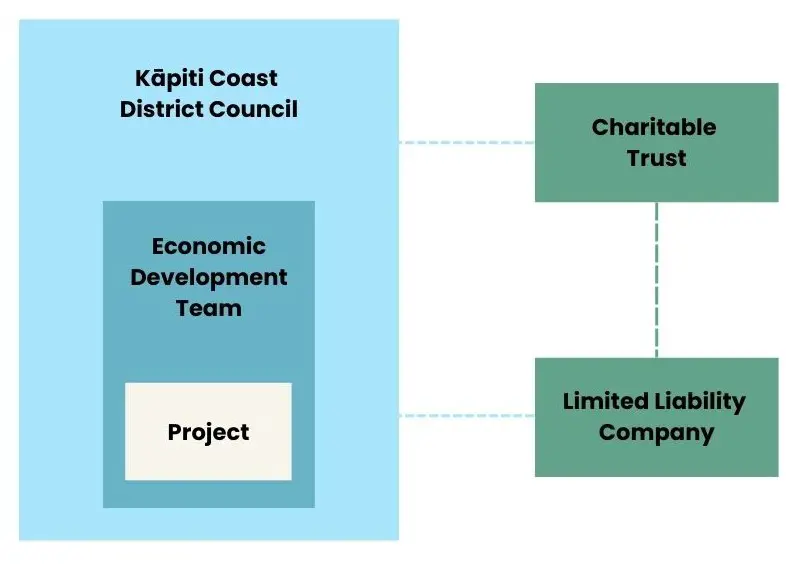
Bringing Kāpiti’s Economic Development Strategy to Life
Kāpiti’s economy is powered by innovation, collaboration, and a deep connection to people and place. Across diverse industries—from tech and tourism to creative enterprises and sustainability-focused businesses—local entrepreneurs are driving growth, creating jobs, and shaping the region’s future.
These case studies highlight businesses and individuals who embody the goals of Kāpiti’s Economic Development Strategy. Whether through skills development, sustainability, industry leadership, or fostering vibrant communities, each story demonstrates the impact of investment, innovation, and collaboration in strengthening our local economy.
By sharing their journeys, we celebrate the resilience, creativity, and ambition that make Kāpiti a thriving hub for business and lifestyle—where opportunities flourish, and the future is being shaped by those who call it home.
50-50 Restaurant: Fine Dining with a Local Touch
Tags: Food & Beverage
Award-winning chef Helen Turnbull brings world-class dining to Paraparaumu Beach at 50-50, her fine-dining restaurant celebrating fresh, local ingredients. Inspired by her time in Japan, Helen fosters a warm, community-focused ethos—mentoring staff and welcoming guests like family. With another new restaurant, Lustre, Kāpiti’s culinary scene is thriving.
Big Mac Slabs: Where Art and Tourism Meet
Tags: Creative
Big Mac Slabs Furniture has grown into more than just a business—it’s a thriving creative hub. Owners Steph Smith and Andy Havard transformed their Paraparaumu site into the Big Mac Slabs Creative Centre, where over 100 artists, makers, and businesses collaborate, sharing resources and ideas to grow Kāpiti’s creative industries together.
Dark Horse Coffee Co: Brewing Sustainability, One Cup at a Time
Tags: Sustainability
Dark Horse Coffee Co is proving that small sustainability wins add up. From low-emission roasting to recyclable packaging and hybrid vehicles, the Paraparaumu-based business is committed to reducing its footprint. With their ‘Leave Less Hoofprints’ motto, they’re inspiring customers to make eco-friendly choices—one coffee bag at a time.
Rescue Zone: Kāpiti Tech Powering Global Marine Safety
Tags: Tech
Inspired by a real-life breakdown at sea, tech entrepreneur Jerome Daste developed Rescue Zone—an all-in-one marine safety app now used worldwide. Built in Kāpiti, it provides instant access to emergency services, distress signals, and community support. With global partnerships and new innovations, Rescue Zone is revolutionising coastal navigation and safety.
Mills Albert: Building Skills, Strengthening Futures
Tags: Skills
From a small start-up to a major earthmoving company, Mills Albert has grown by investing in people. With a strong focus on skills training, management development, and Māori values, the Kāpiti-based business now employs 120 staff. Their commitment to sustainability and workforce growth continues to shape the region’s construction industry.
Ngā Manu: Where Tourism Meets Sustainability
Tags: Tourism
Ngā Manu Nature Reserve has been a treasured Kāpiti sanctuary for 50 years, blending conservation with eco-tourism. With a new sustainability strategy, carbon-neutral goals, and enhanced visitor experiences, the reserve is protecting native wildlife while inspiring others to connect with nature. A multi-million-dollar upgrade will further enrich its impact.
Pipi Learning: Transforming education through tech and inclusion
Tags: Education, Diversity
Founded in Kāpiti during lockdown, Pipi Learning is revolutionising vocational eLearning with engaging, interactive modules. Led by psychologist-turned-entrepreneur Elizabeth Asbury, the female-led team is making education more accessible. With growing international partnerships, Pipi Learning proves that innovation, diversity, and flexible work environments drive success in the tech and education sectors.
Mostly Music: Supporting Community Connection Through Music
Tags: Creative
Founded by musicians Jess Deacon and Cam Steel, Mostly Music is the go-to platform for live music in Kāpiti and Horowhenua. Promoting artists, venues, and events, it strengthens the local creative economy. Through partnerships and advocacy, Mostly Music is championing the arts and ensuring live music thrives in the region.


